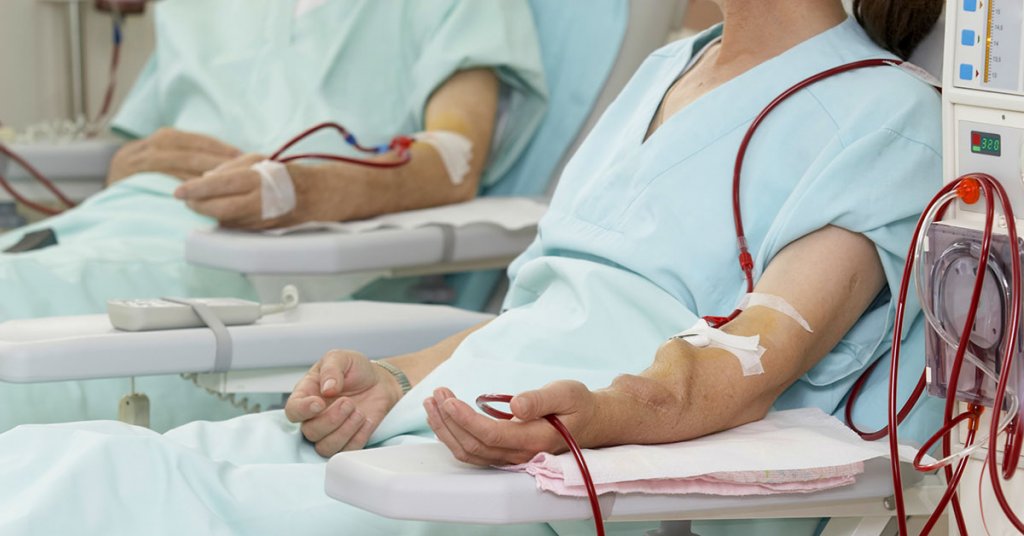6 Things to Know About Dialysis Access

According to the National Institute of Diabetes and Digestive and Kidney Disease, more than 661,000 Americans have kidney failure. Around 468,000 of these people are on hemodialysis. Dialysis requires access to allow the blood to travel through the dialysis machine to be cleaned. Dialysis access creation and management is an important part of your care, so you should be familiar with some key facts about the different types of access and how to care for them.
1. There are Three Types of Vascular Access
- Arteriovenous Fistula: Often called an AV fistula or just a fistula. Access is created by surgically joining an artery and vein under the skin in the arm.
- Graft: A graft is made by surgically joining a piece of soft tube to join an artery and vein under the skin in the arm.
- Catheter: A catheter is a soft tube that is placed in a large vein, usually in the neck or chest.
2. There are Pros and Cons to Each Type of Access
Fistula: A fistula is considered the best overall option due to its longevity and the decreased risks of infection and other access-related issues. A fistula increases blood flow during treatment, which results in veins that are stronger and larger. This improves the outcomes of hemodialysis treatments. With proper care, a fistula can provide access for many years. However, not all patients are candidates for fistulas. Also, the fistula can take 6-8 weeks to mature after the initial procedure. That means that temporary access needs to be used during that time period. The fistula may fail to mature, making the creation of another type of access necessary.
Graft: A graft creates permanent access with a tube durable enough to be accessed multiple times. The graft can be used for hemodialysis within 2-4 weeks after creation. That’s a shorter wait time than with a fistula. However, the risks of infection and clotting are greater with grafts than fistulas. Not all patients are candidates for grafts.
Catheter: Catheters are generally used as temporary access for most patients. That’s because long term use of a catheter can result in blood vessel damage or stenosis. Catheters present an increased risk of infection and failure. Patients with catheters can not shower or swim while they are catheterized. However, catheters can be used immediately after they are placed rather than waiting for a graft or fistula to mature.
3. Proper Care is Critical For Hemodialysis Access
Your dialysis team will educate you on how to care for your access, and following their directions is important to preventing infection and protecting your access. With catheters, you must keep the area and dressings clean and dry. The area should be cleaned and the dressing changed at each dialysis session. You should be given proper dressing supplies for your home in case it needs to be changed between sessions.
Fistulas and grafts should be washed with antibacterial soap each day. This is especially important before dialysis sessions. Your dialysis team should rotate needles during treatments. Don’t scratch or pick at the skin at the access site. Check the access daily for redness, warmth, or signs of infection.
4. There are Steps You Can Take to Keep Your Access Functioning Properly
The above care tips are very basic and your care team should provide you with more detailed instructions that need to be followed carefully to keep your access working. These instructions may include:
- Check your blood flow several times a day by feeling for vibration
- Don’t put pressure on the access
- No jewelry or tight clothing on your access arm
- Don’t carry heavy objects
- Don’t sleep with your head or body resting on the access arm
- Blood pressure cuffs should not be used on your access arm
- Blood should not be drawn from your access arm
5. Know When to Seek Care for Access Problems
If you can’t feel the blood flowing in your access during one of your daily checks, you should call your doctor or dialysis center. If breakthrough bleeding after dialysis lasts longer than 30 minutes, then your physician or dialysis center should be contacted. If there any signs of infection or clotting, you should seek medical attention as soon as possible.
6. Choosing the Right Dialysis Access Care Makes a Big Difference
Preferred Vascular Group provides superior dialysis access care for patients in Macon and Atlanta, GA as well as Cleveland, OH. We serve as a part of your extended nephrology team and work with your nephrologist to evaluate you and recommend the right type of access for you. We prioritize taking proactive measures to prevent issues that can negatively affect the success of your hemodialysis treatment.
—
If you would like to schedule an appointment at Preferred Vascular Group to have a consult with a Board-Certified physician or would like to have one of our highly trained care providers reach out to you, please click on a button below:
